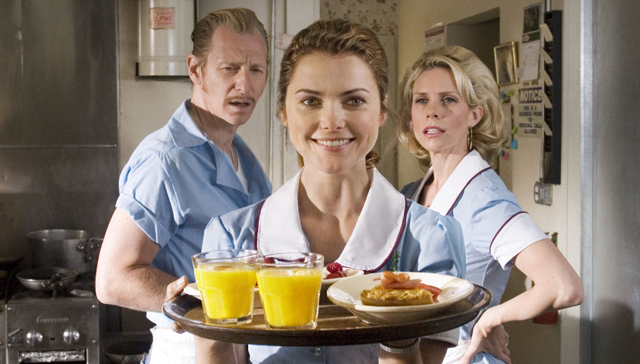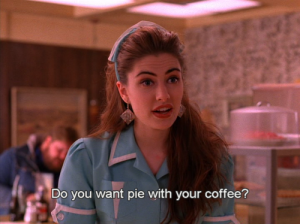Before moving my wagon train West, I worked as a server and bartender for four years in Philadelphia, PA. And while I mostly enjoyed the generosity of those I served, there were always instances when my work wasn’t compensated, at least not by what I consider to be acceptable tipping standards. Like all servers, I have my share of service horror stories. From a backed up kitchen causing a woman to scream belittling things at me in the middle of a packed dining room to high check dine-n-ditchers sticking me with their tab, I’ve been through it all. It can be absolutely terrifying to rely on strangers’ tips as your primary income, but that’s what everyone who’s ever served you dinner has had to do. Isn’t that kind of crazy to think about?
I was one of the lucky ones whose career in food service was mostly positive and profitable, but when I think back on how I earned my living, it’s pretty astonishing. Largely, I depended on the kindness of strangers or, more specifically, depended on them liking me enough during our transaction to leave me a sizable tip. In fact, almost my entire earned wage came from tips because in Pennsylvania servers earn $2.83 an hour. I never looked into this, I just accepted it as a simple fact: in the US, we tip servers and that’s how they make their money. That’s just how it is, no further explanation needed or offered. But recently, as several news stories about poor tipping fallout have made their way to the national news, I wanted to learn more about why this is the way it is and try to figure out just where that leaves us.
The simple answer, as some of you already know, is that it’s a pretty strange system we have set up here. Though tipping is not mandatory and cannot be enforced by any law, it has become social law: it is anticipated, it is expected, it is the norm. The federal government actually recognizes a distinction between regular wages and wages for those in frequently tipped positions and in 1966 began including a sub-section of the federal minimum wage called the tipped minimum wage. According to the Fair Labor and Standards Act, a person is defined as a tipped employee if they earn over $30 a month in tips. If the employee’s tipped income combined with their tipped minimum wage does not equal out to a regular minimum wage, the employer is obligated to make up the difference. Really, nothing could be simpler.
Here’s where it starts to get tricky; the federal tipped minimum wage was raised to $2.13 in 1991 and has not been raised since despite inflation and an escalated cost of living. However, individual states can vote to raise their tipped minimum wage. Luckily for our state’s fine servers, California’s tipped minimum wage is $8.00 (Washington offers the highest at $9.19/hr). Though many states have decided to increase their tipped minimum wage, approximately 50% of states still allow for $2.13/hr with the expectation of tips. That’s a pretty lofty expectation and certainly puts a lot of pressure on both servers and patrons.
Which brings me to my next observation: money makes people emotional. The quest to get it and the process of parting with it can bring out a flurry of emotion. Somehow, as a nation, we’ve never really been able to agree upon an appropriate amount to tip our servers. So when it comes to coughing up extra scrilla for a tip, the waters can get real muddy real quick. As a teenager running off to Ruby Tuesday’s at the mall, my mom made sure I understood I needed to budget for a tip of 10-15%. In recent years though, the average tip percentage has gone up to 15-20% (and most servers would tell you 20% should be a minimum). Even though etiquette guru Emily Post declares tips at sit-down restaurants should be 15-20%, no questions asked, some people simply won’t ever tip that much. It’s an occupational hazard of sorts. Make no mistake, providing good service is hard work. And, while parting with hard earned money can be tough, working hard to earn money can be even tougher, especially when your customers determine your income.



